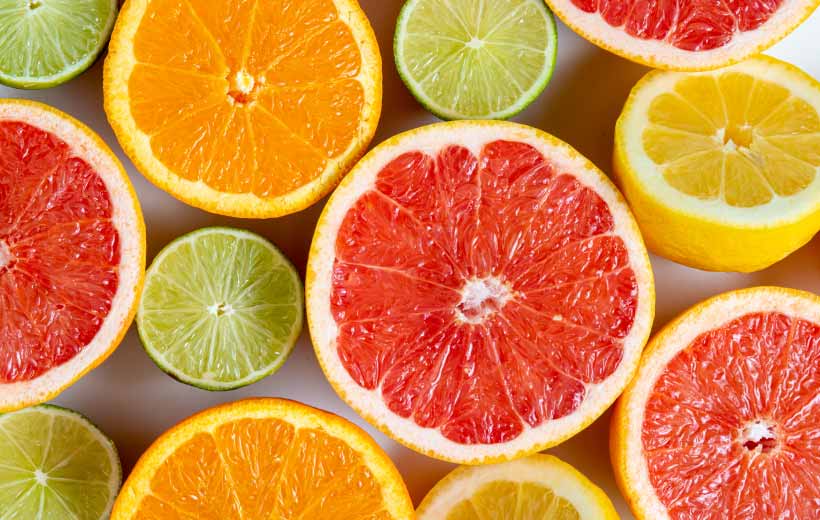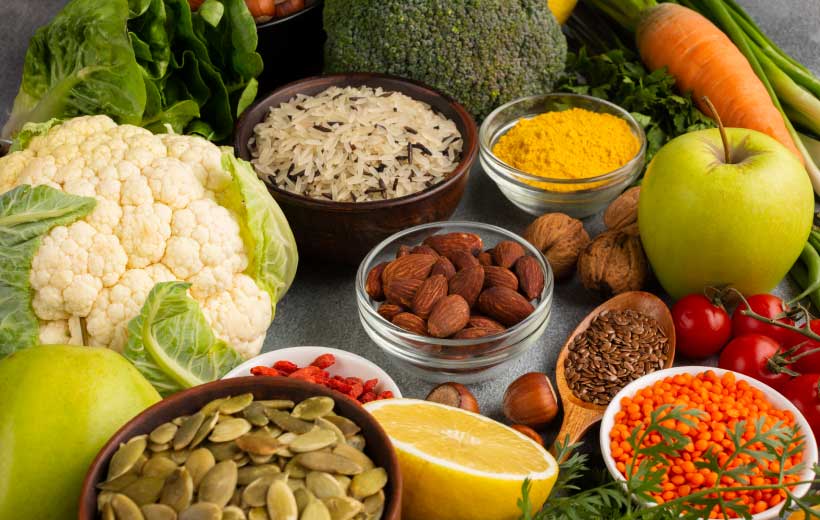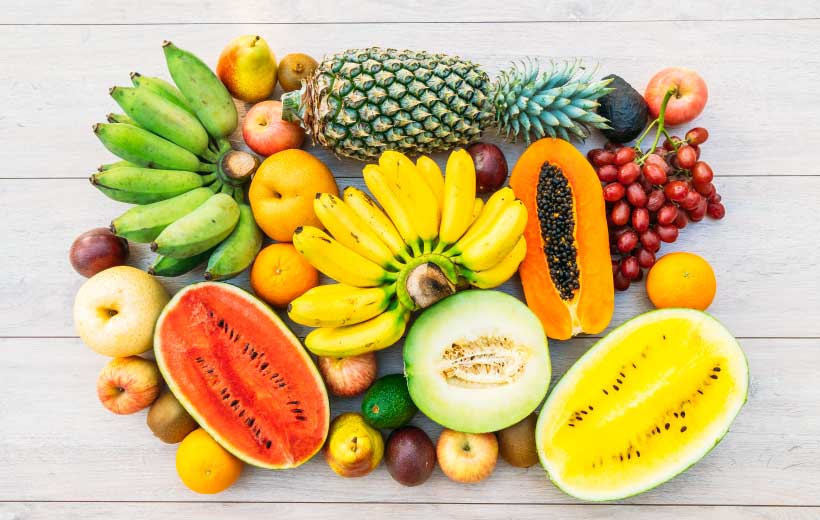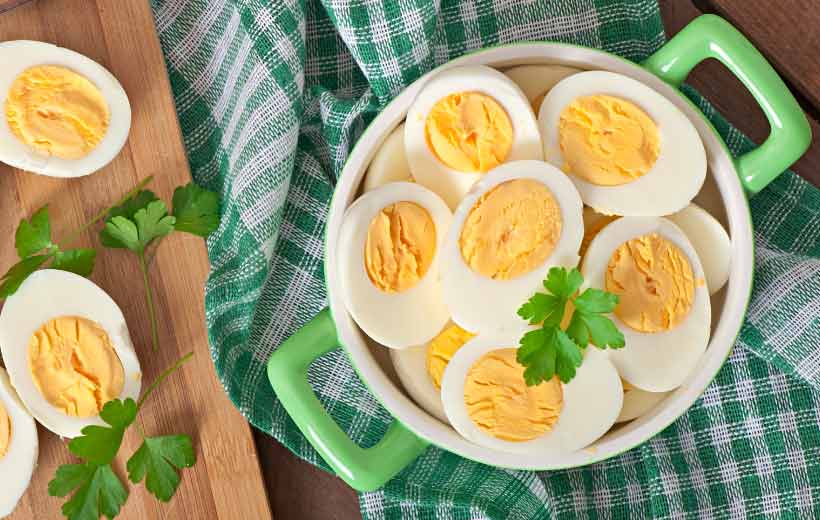Watermelon and melon are 90% water by weight, while mangoes, citrus fruits, and grapefruits are rich in vitamin C, which can cool down and treat heatstroke effectively.
Orange, grapefruit, lemon
Oranges, lemons, grapefruits, and tangerines are citrus fruits, excellent, high water content, and abundant vitamin C help reduce thirst and enhance immunity. They are processed into many cool drinks in smoothies and juices to keep the body cool, energetic, and healthy in the summer.
Orange is sweet, cool, and has a cooling effect. Orange juice is delicious and nutritious and can be combined with other tubers and fruits to make juice, adding sugar to make it easy to drink and not harmful to the stomach.
It is recommended to drink only one cup per day, equivalent to about 200 ml. Pregnant women can drink more but should divide it into several doses. Children drinking half an orange a day is enough. People with stomach ulcers, duodenal ulcers, pancreatitis, or kidney disease should limit eating oranges. Do not eat oranges when hungry, right after eating, or right before and after drinking milk.
Grapefruit contains an abundant amount of vitamin C. Eating half a grapefruit can provide 50% of the recommended daily vitamin intake for the body. The fruit is also rich in vitamin A, fiber, and antioxidants, which help improve resistance, improve the immune system, and recover faster after a cold.
Can be eaten directly or made with grapefruit juice, bringing a cool feeling for summer days. Grapefruit juice can interact with some drugs such as antibiotics, immunosuppressants, benzodiazepines, anti-anxiety drugs, and some statins, so be careful not to share grapefruit juice with these drugs.
Lemon is sweet and sour, neutral, has a cooling effect, quenches thirst, and can be used in cases of heatstroke, dehydration, thirst, agitation, heat in the mouth, and poor appetite.
Lemon is a rich source of vitamins, contains a large amount of vitamin C, antioxidants, and nutrients, helps strengthen resistance, aids digestion, reduces fatigue, balances water and electrolytes, and Maintains moisture and elasticity of the skin on hot days. Lemonade is cheap, easy to buy, and easy to make a beverage.
Watermelon
Watermelon has a light sweet taste, is cold, and has the effect of clearing heat and refreshment, effectively treating heatstroke and heatstroke. According to modern medicine, watermelon has a high water content, is the best source of hydration, and provides cooling water for the body. Watermelon also contains nutrients, vitamins, and minerals with anti-inflammatory, anti-cancer, and antioxidant properties.
Watermelon can be used fresh or juiced. However, doctors note that you should not eat too much, or eat many times a day, especially for people with digestive disorders, diarrhea, and kidney problems.
Store melons in a cool, room-temperature environment. Cut watermelons that have not been used up should be wrapped with food wrap or sealed in a sealed container, and stored in a cold environment to prevent infection and retain freshness.
Melon
According to Oriental medicine, melon has cold properties, a refreshing effect, ventilation, and a diuretic, and can prevent sunburn on hot days. Watermelon contains 90% water and has electrolytes such as potassium, magnesium, sodium, and calcium, which help to provide water and cools the body. Melons are also rich in nutrients, fiber, and good plant compounds, which promote heart health, aid in improving blood sugar, and maintain strong bones and teeth.
You should choose a melon with thin skin, a big, round, heavy hand, lightly pressed, melon is soft and has a faint aroma, is a delicious melon. Ripe fruits with cracks in the skin are usually the most delicious and sweet. Do not choose fruit that is cracked, easily waterlogged, or damaged inside.
Eating a lot of melons can cause stomachache. Therefore, people who have just recovered from illness and a damaged spleen should abstain from eating.

Watermelon, melon contains high water content, helps to quench thirst, and treats heatstroke and heatstroke.
Mango
According to Oriental medicine, ripe mango is sweet and sour, has beneficial effects on the stomach, clears heat, quenches thirst, and is a diuretic. Mangoes contain a lot of fiber to help support the digestive system and an abundant amount of vitamin C helps strengthen the immune system, reduce inflammation and help maintain healthy skin. Mango’s strong antioxidant and anti-inflammatory properties can help reduce the risk of heat illness.
Do not eat too many mangoes, especially people with digestive problems, people with diarrhea. Do not eat mango on an empty stomach because the high amount of vitamin C can irritate the stomach, increasing the secretion of gastric juice. People with diabetes should limit their consumption of mangoes. People with internal heat, sensitive or allergic conditions, and acne, should drink a lot of water and increase green vegetables when eating mango.
Follow the website ongreenbeauty.com to get more health, nutrition, and beauty information to protect the health of yourself and your loved ones in your family.





Itís difficult to find experienced people for this subject, but you sound like you know what youíre talking about! Thanks